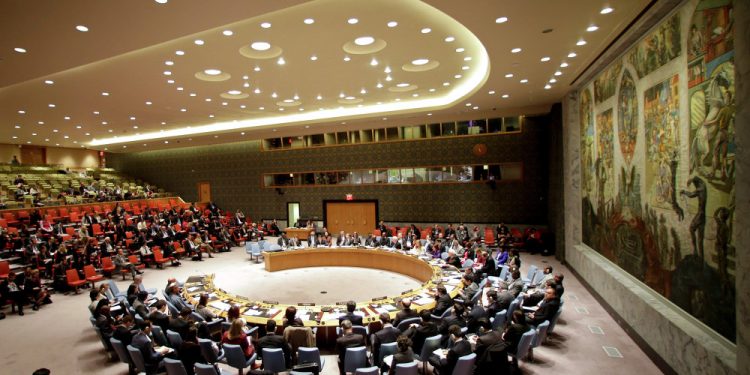United Nations: In a swipe at China, India told the UN Security Council Thursday that countries should not place ‘blocks and holds’ without any reason on requests to designate terrorists, warning that any double standards and distinctions between terrorists would be made only at ‘our own peril’.
“The international community holds a collective view that terrorism in all its forms and manifestations must be condemned. There cannot be any exception or justification for any act of terrorism, regardless of motivations behind such acts,” External Affairs Minister S Jaishankar told the UN Security Council.
Jaishankar, President of the UN Security Council, chaired the UNSC Briefing on Threats to International Peace and Security Caused by Terrorist Acts held under India’s Presidency of the Council.
Speaking in his national capacity, Jaishankar alluded to his remarks to the Council made in January this year when he had proposed an eight-point action plan aimed at collectively eliminating the scourge of terrorism.
“Summon the political will: don’t justify terrorism, don’t glorify terrorists; No double standards. Terrorists are terrorists; distinctions are made only at our own peril; Don’t place blocks and holds on listing requests without any reason,” he said.
This was in reference to China, a permanent member of the UNSC, repeatedly placing technical holds on bids by India and other nations to designate head of Pakistan-based militant group Jaish-e-Mohammed Masood Azhar.
The United Nations designated Azhar as a global terrorist in 2019 after China lifted its hold on a proposal to blacklist him under the Security Council’s Sanctions Committee, slapping an arms embargo, asset freeze and travel ban on him, 10 years after India first moved to have him blacklisted at the UN.
Jaishankar also called for discouraging “exclusivist thinking” and urged member nations to be on guard against new terminologies and false priorities.
He stressed that enlisting and delisting should be done objectively, and not on political or religious considerations.
The international community should also recognise the linkage to organised crime, support and strengthen the FATF, and and provide greater funding to UN Office of Counter Terrorism.
“I call on this Council to collectively build on these principles. It is also important therefore to end the stalemate preventing the adoption of a Comprehensive Convention on International Terrorism, which India has championed for so long,” he said.
Asserting that there cannot be any exception or justification for any act of terrorism, regardless of motivations behind such acts, Jaishankar said, “we also recognise that the menace of terrorism cannot be and should not be associated with any religion, nationality, civilisation or ethnic group.
However, in spite of the progress made to tighten the legal, security, financing and other frameworks to combat terrorism, terrorists are constantly finding newer ways of motivating, resourcing and executing acts of terror, he noted.
“Unfortunately, there are also some countries who seek to undermine or subvert our collective resolve to fight terrorism. This cannot be allowed to pass,” he said.
PTI






































